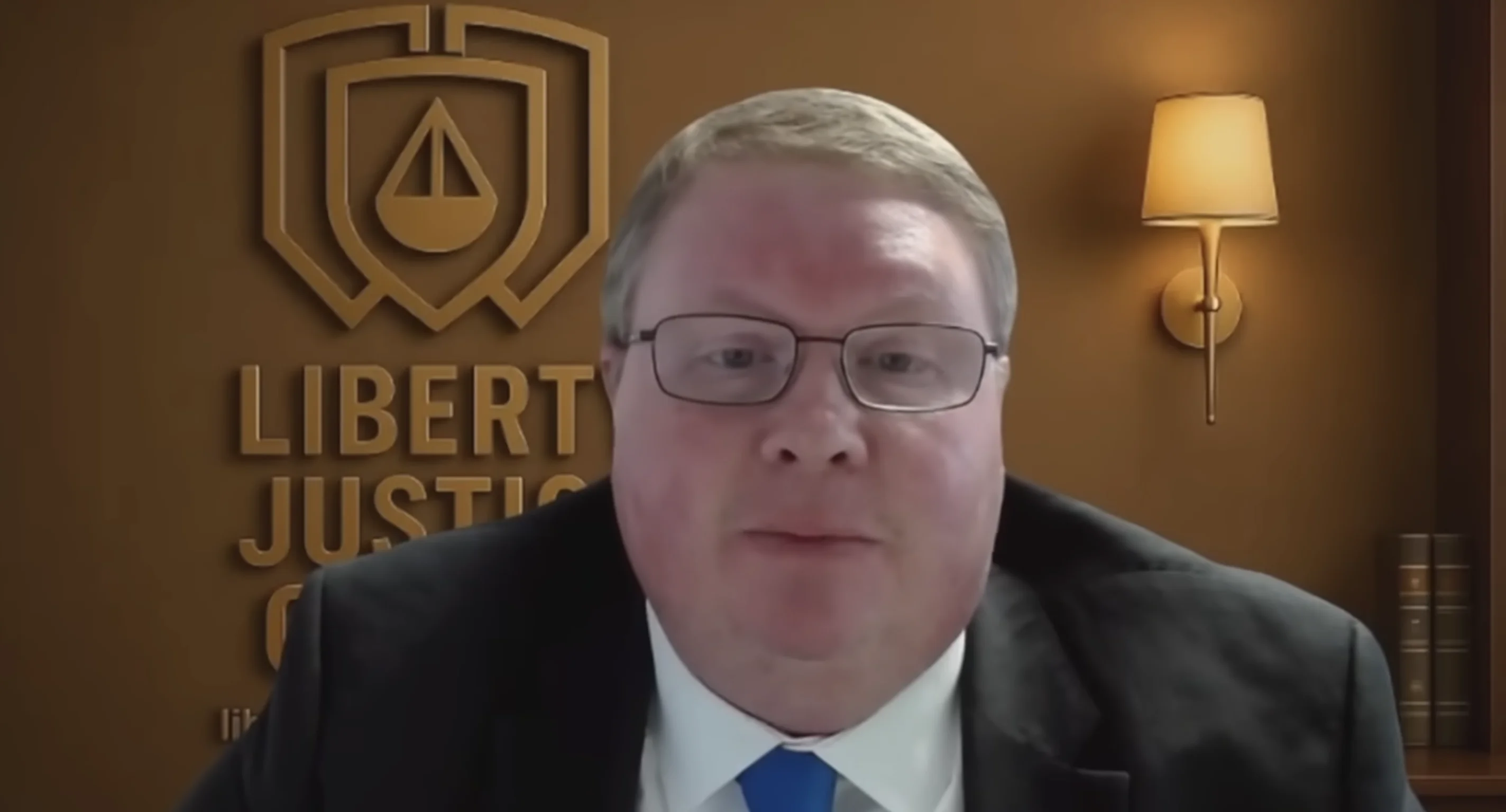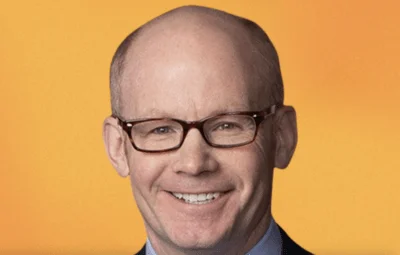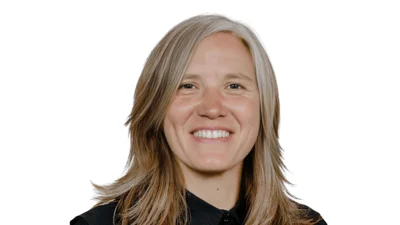Ryan Morrison, senior attorney at the Liberty Justice Center, discusses the $9.8 million campaign finance fine against Illinois Senate President Don Harmon. | The Center Square / YouTube
Ryan Morrison, senior attorney at the Liberty Justice Center, discusses the $9.8 million campaign finance fine against Illinois Senate President Don Harmon. | The Center Square / YouTube
Earlier this year, the Liberty Justice Center (LJC) intervened in a high-profile campaign finance case after Democratic Illinois Senate President Don Harmon was fined $9.8 million for excessive contributions in violation of a law he co-sponsored, a penalty now frozen following an Oct. 21 deadlocked vote by the Il. State Board of Elections (ISBE).
“The Liberty Justice Center’s involvement underscores a simple principle: no one is above the law—not even those who helped write it,” the press release said.
LJC got involved after Harmon’s campaign ignored ISBE warnings that it had exceeded contribution limits and was ordered to return the funds or donate them to charity.
“The Liberty Justice Center filed a petition on behalf of Nick Binotti, a government watchdog and constituent of State Senator Don Harmon, to intervene in an Illinois State Board of Elections proceeding involving allegations that Senator Harmon’s campaign committee violated the state’s campaign-finance contribution limits,” the Liberty Justice Center said in a press release.
LJC is a nonprofit, nonpartisan legal firm founded in Chicago and now based in Austin, Texas. It is known for challenging government overreach in the pursuit of protecting constitutional rights and describes itself as seeking “to protect economic liberty, private property rights, free speech, and other fundamental rights.”
The fine, levied by the Board and supported by hearing officer Barbara Goodman, stems from allegations that Harmon’s campaign accepted roughly $4 million in contributions above legal limits after the March 2024 primary. Goodman’s 15-page report concluded that Harmon’s committee either “changed its interpretation” of the law or “simply chose to ignore it,” and recommended that the $9.8 million penalty be upheld.
“This case raises an important issue of equal enforcement of the law. While the Liberty Justice Center has long supported fewer restrictions on political speech and campaign contributions, when the government sets rules, those rules must be applied equally to everyone—including the politicians who wrote them,” the Liberty Justice Center said.
Following the Board's deadlocked vote, Democrats were sympathetic to Harmon’s legal arguments, while Republicans generally supported Goodman’s recommendation to uphold the fine.
The Illinois State Board of Elections is scheduled to reconsider the matter at its next meeting on Nov. 18. Until then, the $9.8 million fine remains levied but unenforced due to the partisan deadlock.
At the Oct. 21 hearing, Republican board member Jack Vrett urged a cautious, step-by-step approach.
“Give us a menu of options and let the board decide at a later date,” Vrett said. “So let’s come up with a road map for them to move it on to the next level, whatever that is.”
Legal experts say the tie vote puts the Board in uncharted territory, as there are no clear guidelines for enforcing a penalty without a majority vote.
Harmon’s attorneys have insisted the fine cannot be collected until the Board reaches a majority decision and have pledged to challenge any attempt to enforce it in court.
However, Liberty Justice Center’s Ryan Morrison discussed the fine with Center Square’s Greg Bishop in August, when it was first levied, and noted possible further remedies in the event of a tie.
“If there is a tie, then the complaint is dismissed,” Morrison told Bishop. “However, if Mr. Binotti is allowed to be a party, he can appeal that to an Illinois Court of Appeals and then get a ruling from them about whether or not the law applies to Senator Harmon and whether or not he has to pay."
The Liberty Justice Center also highlighted concerns about partisan inaction.
“The Board of Elections often deadlocks along partisan lines, allowing serious complaints to disappear without accountability,” the Liberty Justice Center said. “By intervening, Mr. Binotti seeks to ensure that this complaint receives full consideration and that the law is not quietly nullified by inaction. His intervention preserves the right to seek judicial review if the Board fails to act, promoting transparency and fairness in Illinois elections.”
Following the deadlock, Democratic Board member Casanda Watson suggested the Board dismiss the case and drop the fine.
Republican Board member Catherine McCrory pushed back.
“Maybe you feel differently. Member Watson, but for myself, I’d like some more information before I make that decision,” McCrory said at the hearing, according to the Chicago Tribune.
The case centers on Illinois’ self-funding exemption, which allows candidates who contribute more than $100,000 of their own money to lift contribution caps for all donors.
Harmon’s campaign invoked the exemption in January 2023 by loaning $100,001 to his committee, but Goodman found that the exemption legally expired after the March 2024 primary.
Despite repeated notices from the Board, Harmon’s campaign continued to accept contributions without filing a new self-funding notification.
Goodman rejected Harmon’s arguments that the exemption should remain in effect until his next ballot appearance and dismissed claims that the state’s “election cycle” definition was ambiguous. Her recommendation, which forms the legal backbone of the case, clearly supports the fine’s enforcement.
“[T]he evidence establishes that the Committee did, in fact, exceed the contribution limits and that the assessment of civil penalties was appropriate,” Goodman wrote. “Accordingly, it is my recommendation that the appeal be denied and that the assessment of penalties stands,” Goodman wrote.
Harmon, a Democrat from Oak Park who has served as Senate President since 2020, represents the 39th Senate District, including Chicago's Austin neighborhood and nearby suburbs.
He was first elected to the State Senate in 2002.
His campaign reported $16.5 million on hand as of September, enough to pay the fine if required.






 Alerts Sign-up
Alerts Sign-up